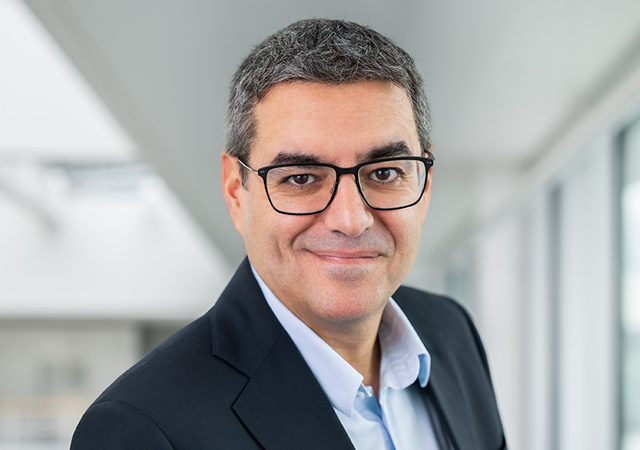
 Padrines with Nesma Infrastructure & Technology officials at the signing ceremony.
Padrines with Nesma Infrastructure & Technology officials at the signing ceremony.
Nemetschek Group, a global leader in software solutions for the architecture, engineering, construction and operations (AEC/O) industry, has signed a memorandum of understanding (MoU) with Nesma Infrastructure & Technology (NIT), a renowned Saudi Arabian infrastructure and technology firm.
This strategic partnership aims to accelerate the digital transformation of Saudi Arabia’s construction and infrastructure sectors, aligning with the kingdom’s Vision 2030 objectives.
The MoU establishes a collaborative framework between Nemetschek and NIT to implement cutting-edge digital solutions, including Building Information Modelling (BIM), digital twins, and open standards, across large-scale infrastructure projects throughout Saudi Arabia. The partnership seeks to enhance project efficiency, sustainability, and innovation in the AEC/O industry.
The MoU outlines joint initiatives in areas such as smart city development, digital infrastructure planning, and workforce upskilling in digital construction methodologies. Both organisations are committed to fostering innovation and setting new benchmarks for excellence in the AEC/O industry.
Nemetschek Group participated at the recent MEED Saudi Giga Projects 2025 event in Riyadh, where Gulf Construction spoke to Yves Padrines, CEO of Nemetschek Group.
 |
|
Padrines highlighted Saudi Arabia’s “enormous” potential. |
Padrines highlighted Saudi Arabia’s “enormous” potential to drive the digitalisation of the global construction sector.
He outlined the significant challenges facing the construction industry worldwide, including project delays and budget overruns, substantial material waste, high CO2 emissions, and shortage of manpower.
He sees Nemetschek’s solutions as critical to addressing these issues within the kingdom’s ambitious development plans.
Nemetschek offers a broad portfolio of software solutions covering the entire construction lifecycle. These include:
• Design and planning: Tools for architects and engineering firms like Graphisoft, Vectorworks, Allplan, Solibiri and Risa.
• Collaboration and construction: Solutions for general contractors, such as Bluebeam, used by over four million users for PDF exchange and markups, and Gocanvas for digital field management, job site safety, and fire systems; and Nevaris, a software designed for construction/ERP, controlling, finance, tenders, quotations, time recording and defect reports.
• Operations and management: SpaceWell for workspace and energy management, catering to facility managers, owners, and tenants; and Crem Solution.
• Horizontal solutions: D-Rofus and D-Twin, offering data-centric digital twin solutions for buildings and smart cities.
Padrines stressed that Nemetschek’s principal aim in Saudi Arabia is to help the kingdom “be productive, efficient, and sustainable in terms of construction”.
Beyond its core architecture, engineering, and construction (AEC) market, Nemetschek is also targeting Saudi Arabia’s burgeoning media and entertainment sector through its Maxon brand. Maxon provides 3D animation, rendering, and sculpting software used in the cinema, movie, and game industries, as well as by advertising agencies.
“We see here huge growth in media and entertainment business,” Padrines noted, citing Maxon’s use by major studios like Disney and Netflix, down to individual freelancers.
Padrines identified educating the market about Nemetschek’s brands and solutions as a primary challenge. To overcome this, the company plans significant investment in education and academia, forging strong partnerships with local universities and schools. This initiative aims to equip students with knowledge of Nemetschek’s tools and their role in creating a more efficient, sustainable, and productive construction industry.
The “hunger for innovating” within Saudi Arabia emerged as the biggest positive for Padrines. He sees an unprecedented opportunity for a technology provider to co-innovate with a large, powerful country that is actively seeking digitalisation. He highlighted that construction is one of the least digitalised industries globally, making Saudi Arabia’s drive for digitalisation particularly impactful.
In a direct message to construction companies across the GCC, Padrines urged: “Let’s work together to make sure that we streamline the workflows to deliver on time, on budget, in a sustainable and productive way.”
He concluded by emphasising the necessity of digitalisation and the adoption of open, interoperable solutions to achieve these goals, moving away from siloed, proprietary systems.

















.jpg)













 (1).jpg)




















































